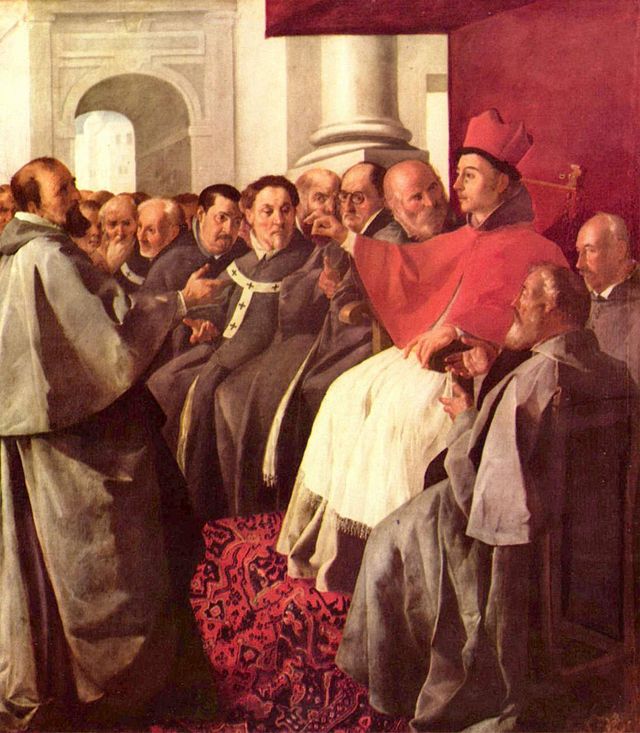Bonaventure receives envoys Emperor
St. Bonaventure receives the envoys of the Byzantine Emperor at the Second Council of Lyon (1640-1650) oil on canvas, Louvre Museum, Paris
Saint Bonaventure was a wise and holy man who devoted his life to the sharing of Christ’s love through mystical and Christian wisdom. His contributions to the Catholic Church – from his writings, teachings, restoration of the Franciscan Order and organization of the Council of Lyon – are immeasurable in their impact, and he is remembered as one of the most brilliant minds of his time.
Pope Gregory consecrated him in November of 1273 in the French city of Lyon, and his tenure as minister general of the Franciscan Order came to an end in May 1274. His first big task as a Cardinal Bishop was to help prepare the Second Ecumenical Council of Lyons, an important ecclesial event aimed at uniting the divisions between the Latin and Greek Churches at the time.
Bonaventure worked hard to prepare the council and was a leading figure in the reform of the church, but sadly, he would not see its completion. Bonaventure died suddenly on July 15, 1274, while the council was still in session. There were rumblings of mysterious circumstances regarding his death, including a rumor that he had been poisoned, but no evidence ever came to fruition. His death was met with great sadness by all at the council, and he was buried the same day in a Franciscan Church.
His contributions to the church and profound sanctity earned him the canonization of a saint on April 14, 1482 by Pope Sixtus IV, and he was declared a Doctor of the Church in 1588 by Pope Sixtus V. He is often referred to as the “Seraphic Doctor” of the Church, with seraphic referring to the highest order of angels in heaven.
Saint Bonaventure could have easily been remembered only for his immense intellect shared in his teachings and writings. Instead, this wise and holy man chose to reinforce that intellectual ability, while good and valid, is inferior to the direction and affections of the heart. One of his most famous quotes is, “If you learn everything except Christ, you learn nothing. If you learn nothing except Christ, you learn everything.”
This image is a public domain image, which means either that copyright has expired in the image or the copyright holder has waived their copyright. Franciscan Gallery charges for the access to high resolution copy of the image. Manually restoration was necessary in order to improve quality, without covering the original image.






Comments
Post a Comment